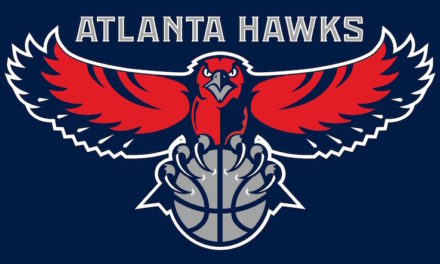“Everyone, red state, blue state, supports space exploration.” — Bill Nye
Last night, the Los Angeles Dodgers took on the Houston Astros for Game One of the 2017 Major League Baseball (MLB) World Series. Those hoping for an underdog to win this year’s World Series were in for as much disappointment as an Emory student opening OPUS to find their entire shopping cart of classes closed. The Dodgers and Astros were clear favorites throughout the year, both with more than 100 wins in the regular season.
However, before your On Fire correspondent can give his or her expert prediction, one road block regarding the whole matter remains: Why the hell is this called the “World Series”?
There is only one non-American team in the MLB, the Toronto Blue Jays, and they have not advanced to the World Series in nearly 25 years. While the National Football League (NFL) uses an apt adjective to describe their championship — “Super” — the MLB fails to find an adequate description. To be clear, your On Fire correspondent is not suggesting that the league downgrade its championship to the “Continental Series” or some other non-overtly-superior name. Rather, why settle for “World Series” when “Universal Series” is still available?
With Venus and Jupiter contributing as much to the Dodgers-Astros matchup as say, Lithuania or Micronesia, it makes no sense for the MLB not to expand its scope. With both baseball and mass consumption serving as pinnacles of American culture, why not try to tame outer space and claim its namesake for the championship series? Broadcasting the games on cosmic airwaves may give MLB Commissioner Robert Manfred the spike in viewership he has forever desired.
There is truly no better time to make this change than right now. Hell, the team representing the American League in this year’s matchup is the Houston Astros, a team whose entire identity is based upon employing Monroe Doctrine-esque policies upon the non-gravitational sublime. If Neil Armstrong could stick our flag in the moon, there’s no reason we can’t stick our flag into the entire concept of the extraterrestrial for the sheer sake of attaining the most grandiose adjective for our baseball championship.
With the Houston Astros’ core identity intertwined with that of universal domination, they should have no problem defeating a Los Angeles team whose name evokes imagery of obstruction or “dodging.” Baseball experts all agree that team mascots are the single most important determining factor when it comes to championship success. Just look at the New York Yankees. Obviously a team embodying American greatness as its mascot would have the most championships; the real mystery is why they don’t win every year.
To support this claim, it’s worthwhile to compare stars from both the Astros and the Dodgers. On Houston’s end, they have designated hitter Evan Gattis. If you were to play a game of pictionary and were assigned the word “girth monster,” a picture of Gattis would be an automatic victory. Gattis is the type of dude to get in the shower and then turn on the water — cold. He’s the type of guy who wouldn’t use oven mitts. He is the epitome of American grit.
On the other end, the Dodgers have pitcher Rich Hill. This crafty left-hander has the body type of a dad throwing spirals to the neighborhood kids at a barbeque, not loopy curveballs to MLB hitters.
To your On Fire correspondent, the prediction for this year’s Series is simple: the Team that aims to conquer space with a contemporary Paul Bunyan should have no problem routing a team whose eluding identity is paired with a Wrangler-wearin’ man going through a midlife crisis.
Astros over the Dodgers in four games.
The Emory Wheel was founded in 1919 and is currently the only independent, student-run newspaper of Emory University. The Wheel publishes weekly on Wednesdays during the academic year, except during University holidays and scheduled publication intermissions.
The Wheel is financially and editorially independent from the University. All of its content is generated by the Wheel’s more than 100 student staff members and contributing writers, and its printing costs are covered by profits from self-generated advertising sales.







